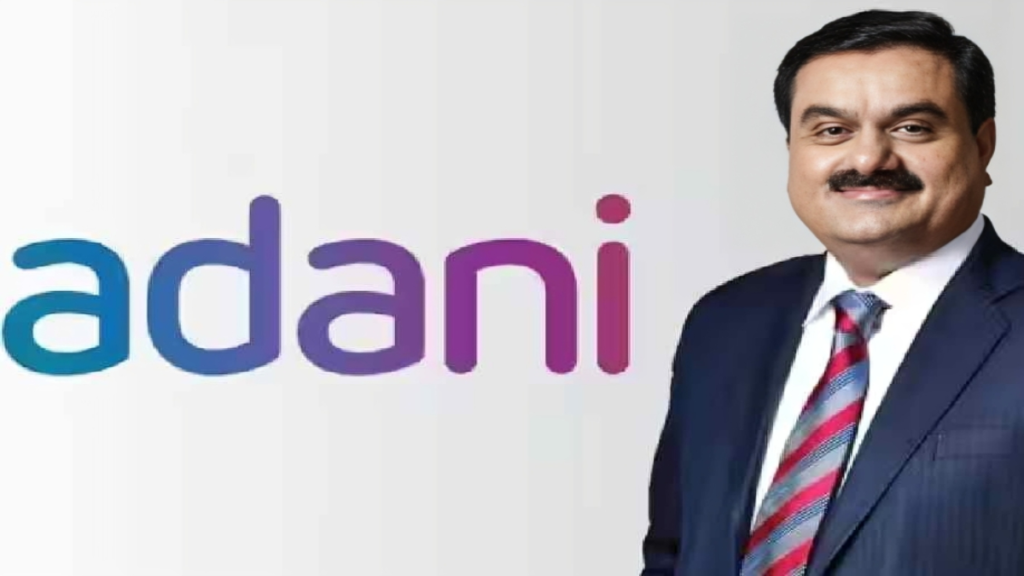The group has emerged stronger after facing various challenges and difficulties over the past year. Despite these obstacles, the group has continued to grow, improve its asset base, and successfully launch important projects such as the Dharavi redevelopment. In order to overcome financial hurdles, the Adani group raised Rs 40,000 crore through stake sales and repaid Rs 17,500 crore of margin-linked financing, resulting in a reduction of debt. The group’s unwavering focus on operations has led to the highest-ever quarterly profit in the second quarter of the current fiscal year. Additionally, most of the listed group companies have recovered from the losses caused by the Hindenburg report. The group remains committed to its growth trajectory and has invested in various projects, including the world’s largest renewable energy generation site in Khavda, a new copper smelter, a green hydrogen ecosystem, and the long-awaited redevelopment of Dharavi. Adani has dismissed the allegations made by Hindenburg Research as baseless and unfounded, referring to them as “lies” and “old and dead allegations” that his detractors have been attempting to revive.
Disguised as a research report, the Hindenburg report was a cleverly constructed collection of carefully chosen half-truths that were sourced from publicly available information, as he stated. He had anticipated that his group’s detailed rebuttal of the accusations would swiftly put an end to the situation, but it resulted in a staggering loss of up to USD 150 billion in market value for his conglomerate’s listed companies at their lowest point. At the beginning of 2023, Adani held the title of the world’s second richest individual, but he subsequently dropped out of the top 20 rankings. “The damaging falsehoods directed towards us had a significant impact on the market capitalization of our portfolio, as the capital markets tend to be driven more by emotions than rationality,” he expressed. “What saddened me even more was the fact that numerous small investors lost their hard-earned savings,” he added. Had the detractors’ plan been fully successful, it could have resulted in a domino effect that would have severely crippled crucial infrastructure assets, including seaports, airports, and the power supply chain. This would have been a catastrophic situation for any country, he emphasized. “However, thanks to our strong assets, the resilience of our operations, and the high level of transparency in our disclosures, the well-informed financial community, including lenders and rating agencies, refused to be swayed by the false information and stood firmly by our side,” he affirmed. Although Adani had to cancel a public issue worth Rs 20,000 crore at his flagship company, Adani Enterprises…
He stated that there was no previous course of action to address this situation. He added that the group concentrated on clearly presenting the facts and telling their side of the story in order to expose the motives of those who attacked them.
As a result, negative campaigns against the Group lost their influence, he explained.
“A clear indication of the change in public perception is the significant growth in our shareholder base, which was a primary target of the follow-on public offering (in Adani Enterprises Ltd). Despite the challenges faced this year, our shareholder base expanded by 43 percent, reaching nearly 7 million.” Reflecting on the lessons learned, Adani, who now holds the 14th position on the world billionaire list, acknowledged that the crisis revealed a fundamental weakness – the group had not given enough attention to its outreach mechanisms.
“Only a few individuals outside the infrastructure finance community were aware of the magnitude, scale, and quality of the Adani Group’s accomplishments. We had naively assumed that all our non-financial stakeholders were aware of us and the truth about us – that our financials were strong, our governance was impeccable, our growth strategy was well-planned, and that we played a crucial role in developing India’s critical infrastructure,” he stated.
This experience emphasized the importance of effectively engaging with non-financial stakeholders.
“We had failed to proactively counter the distorted narratives regarding our debt levels and baseless accusations of political bias, which resulted in the spread of distorted perceptions.
“The reality is that, among companies in our class of transportation and utility, we have one of the lowest debt-EBITDA ratios. (For the half-year ending September 2023, this ratio was 2.5x). Furthermore, with an infrastructure business presence in 23 Indian states governed by political parties across the spectrum, we are truly politically neutral,” he clarified.
He concluded the piece by saying “the trials and tribulations of the past year have taught us valuable lessons, made us stronger and reaffirmed our faith in Indian institutions.” This “devious attack” on the group and its strong countermeasures will no doubt become a case study, he said, adding that he was sharing his thoughts as similar attacks could happen on other Indian groups as well in future.
“I am under no illusions that this is the end of such attacks. I believe we have emerged even stronger from this experience and even more unwavering in our resolve to continue our humble contribution to the India growth story,” he said.
